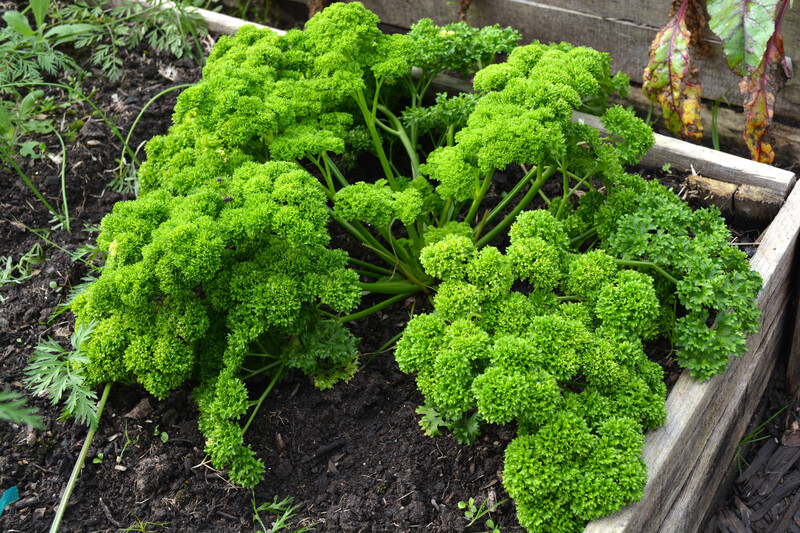From Waste to Wealth: Enriching Soil Naturally
Posted on 29/06/2025
From Waste to Wealth: Enriching Soil Naturally
The demand for sustainable agricultural practices continues to rise globally. One approach gaining particular traction is transforming organic waste into wealth by enriching soil naturally. This technique, rooted both in tradition and innovation, not only reduces landfill accumulation but also fosters the development of nutrient-rich, fertile soils for increased productivity. In this comprehensive guide, we will explore the journey from waste to wealth and show you how natural soil enrichment can benefit your garden, farm, and the planet.
Understanding Soil Enrichment: A Natural Perspective
Soil health is the cornerstone of productive agriculture. Fertile, well-structured soils support the robust growth of crops, protect against erosion, and help maintain ecological balance. While synthetic fertilizers offer rapid nutrient boosts, their prolonged use can deteriorate soil structure and harm beneficial microorganisms. Therefore, turning organic waste into organic soil enrichment presents a sustainable and natural solution.
What Does Enriching Soil Naturally Mean?
Enriching soil naturally involves using organic matter such as food scraps, yard trimmings, animal manure, and other biodegradable materials to improve soil fertility. These materials decompose over time, releasing essential nutrients and improving soil structure. The result is a vibrant soil ecosystem that supports healthy plant growth and reduces the reliance on chemical fertilizers.
- Compost: Decomposed organic material, providing a range of nutrients.
- Vermicompost: Nutrient-rich compost produced with the help of earthworms.
- Green Manure: Plants grown and turned into the soil to release nutrients.
- Mulching: Protective cover of organic materials on soil to retain moisture and supply nutrients.

Why Turn Waste into Soil Wealth?
Millions of tons of organic waste are generated globally each year, much of which winds up in landfills. By transforming these resources back into the food chain as natural soil enrichers, we promote several key benefits for both people and the environment.
- Reduces Landfill Waste: Utilizing household and agricultural by-products decreases the volume of landfills and associated greenhouse gases.
- Improves Soil Structure: Organic amendments enhance aeration, water retention, and microbial life, making soils more resilient to drought and erosion.
- Encourages Biodiversity: Rich soils attract beneficial insects, microorganisms, and earthworms essential for healthy plant growth.
- Supports Long-Term Productivity: Rather than a short-lived nutrient boost, natural enrichment builds lasting soil fertility.
- Saves Money: The need for expensive synthetic fertilizers and pesticides diminishes, leading to financial savings for farmers and gardeners.
Methods of Enriching Soil Naturally: From Kitchen to Garden
1. Composting: The Classic Process
The most renowned method of turning waste into soil wealth is composting. This simple yet highly effective technique allows for the decomposition of organic material into a nutrient-rich humus that can be added directly to garden soil.
Composting Fundamentals:- Collect kitchen scraps: fruit peels, coffee grounds, eggshells, and leftover vegetables.
- Add yard waste: grass clippings, leaves, small branches, and plant trimmings.
- Balance carbon and nitrogen: A good mix of "greens" (nitrogen-rich) and "browns" (carbon-rich) ensures efficient decomposition.
- Maintain moisture and aeration: Keep compost as moist as a wrung-out sponge and turn regularly to provide oxygen.
Did you know? Properly managed compost piles can reach temperatures up to 140?F (60?C), eliminating many plant diseases and seeds! This process transforms kitchen and yard waste into a black, crumbly treasure often called "black gold."
2. Vermicomposting: Earthworms to the Rescue
Vermicomposting harnesses the power of earthworms--especially red wigglers--to consume organic waste. In return, they create worm castings, an outstanding organic amendment, enriching soil naturally with concentrated nutrients and beneficial microbes.
Vermicomposting Tips:- Start with a worm bin: Use a ventilated container with bedding materials like shredded newspaper and coconut coir.
- Add small food scraps: Avoid citrus, spicy foods, and meat, which can disturb the worms.
- Harvest castings after a few months and add directly to garden beds and pots.
Worm castings act as both a slow-release fertilizer and a rich inoculant, introducing healthy biology into poor or tired soils.
3. Mulching: Nature's Blanket
Mulching involves spreading a layer of organic material (wood chips, straw, leaves) over the soil surface. This method both conserves soil moisture and returns nutrients to the earth as the mulch decays.
Mulching Benefits:- Suppresses weeds by limiting their sunlight exposure.
- Retains moisture by reducing evaporation.
- Regulates soil temperature, protecting roots from extreme heat and cold.
- Slowly enriches soil naturally as it breaks down.
4. Green Manure: Plant-Powered Fertility
Green manure consists of fast-growing cover crops, like clover, vetch, or rye, which are sown and then incorporated into the soil while still green. As they decompose, these plants dramatically increase soil organic matter and nutrient content.
How to Use Green Manure:- Choose appropriate cover crops based on climate and farming goals.
- When the crop approaches flowering, cut it down and till it into the soil.
- Let it decompose for a few weeks before planting your main crops.
Green manure is a valuable tool for natural soil enrichment, especially in rotation with cash crops.
5. Biochar: Ancient Wisdom, Modern Benefits
Biochar, produced by burning organic matter in low-oxygen conditions, is a carbon-rich soil amendment. Historically used in the Amazon (as "terra preta"), biochar offers long-term benefits, improving soil fertility, water retention, and carbon sequestration.
Biochar's Advantages:- Enhances nutrient and water holding capacity.
- Provides long-term soil improvement--biochar can remain stable in soil for centuries.
- Sequesters carbon, reducing greenhouse gas emissions.
Common Household and Farm Wastes for Soil Enrichment
Many items you typically toss in the trash are treasures for natural soil enrichment. Incorporating these into your soil amendment routine not only reduces environmental impact but also turns everyday waste into wealth.
Examples of Reusable Organic Waste:- Fruit and vegetable peels
- Coffee grounds and filters
- Eggshells (crushed, for calcium)
- Leaves, grass clippings, and garden trimmings
- Unbleached paper and cardboard pieces
- Wood ash (in moderation, for potassium)
- Chicken or cow manure (well-aged or composted)
Pro tip: Always avoid adding pet waste, diseased plant material, and treated wood to your compost or garden, as these may introduce pathogens or harmful chemicals.
Sustainable Soil Management: Best Practices
Whether you manage a backyard vegetable patch or a large-scale farm, adopting best practices can maximize the benefits of enriching soil naturally from organic waste:
- Test Your Soil Regularly: Determine nutrient needs before adding amendments to avoid over-fertilization.
- Diversify Organic Inputs: A variety of materials feeds a broader range of soil microorganisms.
- Rotate Crops and Amendments: Rotating the types of crops and organic amendments maintains a balanced soil ecosystem.
- Monitor Decomposition: Ensure compost is fully broken down before application to avoid nitrogen "tie-up."
- Practice Conservation Tillage: Minimize plowing to preserve soil structure and organic matter.
Enriching Soil Naturally: Environmental and Economic Gains
Turning waste into soil wealth doesn't just benefit your garden--it's an effective climate action. Composting, mulching, and green manuring all help to:
- Reduce methane emissions from landfills.
- Enhance soil carbon sequestration, mitigating climate change.
- Foster local food security by increasing yields naturally and affordably.
- Create business opportunities in compost production and consulting.
Moreover, stewardship of your land and waste empowers communities--transforming waste into valuable assets and healthier environments.
Nutrient Recycling: A Closer Look
Soil is often described as a living entity, teeming with bacteria, fungi, protozoa, and other organisms. These biological partners play a crucial role in recycling nutrients from waste materials back into the food chain. Here's how the process works:
The Nutrient Cycle:- Organic matter (food scraps, leaves, manure) is decomposed by soil microbes.
- Decomposers convert complex organic compounds into simpler nutrients (nitrogen, phosphorus, potassium).
- Plants absorb these nutrients, using them for growth and food production.
- Organic residues from plants (and animals) return to the soil, completing the cycle.
Maintaining this cycle is the very definition of turning waste into wealth--and it's a process you can actively participate in, whether at home or in agriculture.
Innovative Approaches to Soil Enrichment from Waste
Recent technological advancements and community-level initiatives have taken soil enrichment from organic waste to new heights. Some innovative approaches include:
- Community Composting: Neighborhood collection points for organic waste, processed centrally for distributed use.
- Urban Farming and Rooftop Gardens: Converting food scraps from restaurants and markets into fertilizer for city gardens.
- Microbial Inoculants: Using specific microbes to accelerate decomposition and increase nutrient availability in compost.
- Biofertilizer Startups: Companies that collect municipal organic waste to create high-value soil amendments for farmers.
As awareness spreads and technologies evolve, the options for enriching soils naturally by transforming waste continue to expand.

How to Get Started: Steps for Home Gardeners and Farmers
Are you ready to embark on your own journey from waste to wealth? Here's how you can integrate these natural soil enrichment practices into your routine:
- Assess your waste stream: Identify kitchen and garden materials that can be composted or otherwise reused.
- Choose a method: Start with traditional compost, try vermicomposting, or experiment with mulching--whatever suits your space and needs.
- Set up a system: Purchase or build a compost bin, worm bin, or dedicated mulch area. Ensure proper aeration, drainage, and protection from pests.
- Stay consistent: Regularly add new material, turn compost, and monitor moisture and temperature.
- Apply to soil: When ready, integrate your homegrown organic matter into garden beds, container plants, or even lawns for healthier soil and thriving plants.
Tip: Start small--even a balcony garden or potted plant benefits from a little homemade compost or mulch. Every bit helps in the journey from waste to wealth.
Conclusion: Reclaiming Value, Sustaining the Future
The transformation from waste to wealth through the natural enrichment of soil is not just eco-friendly--it's a tradition reborn, blending ancient wisdom with modern needs. By embracing these sustainable practices, we return vital nutrients to our soils, safeguard our environment, and support healthier, more resilient agricultural systems.
Every orange peel, grass clipping, and autumn leaf is a potential asset. Let's work together to enrich soil naturally, build vibrant gardens, and create a sustainable future--one handful of black gold at a time.
Latest Posts
Vertical Gardening: A Fresh Perspective on Urban Greenery
Gardening Prowess and Pets: Tips for a Plant and Pup Paradise
Explore Vital Gardening Tools for Nature Lovers

